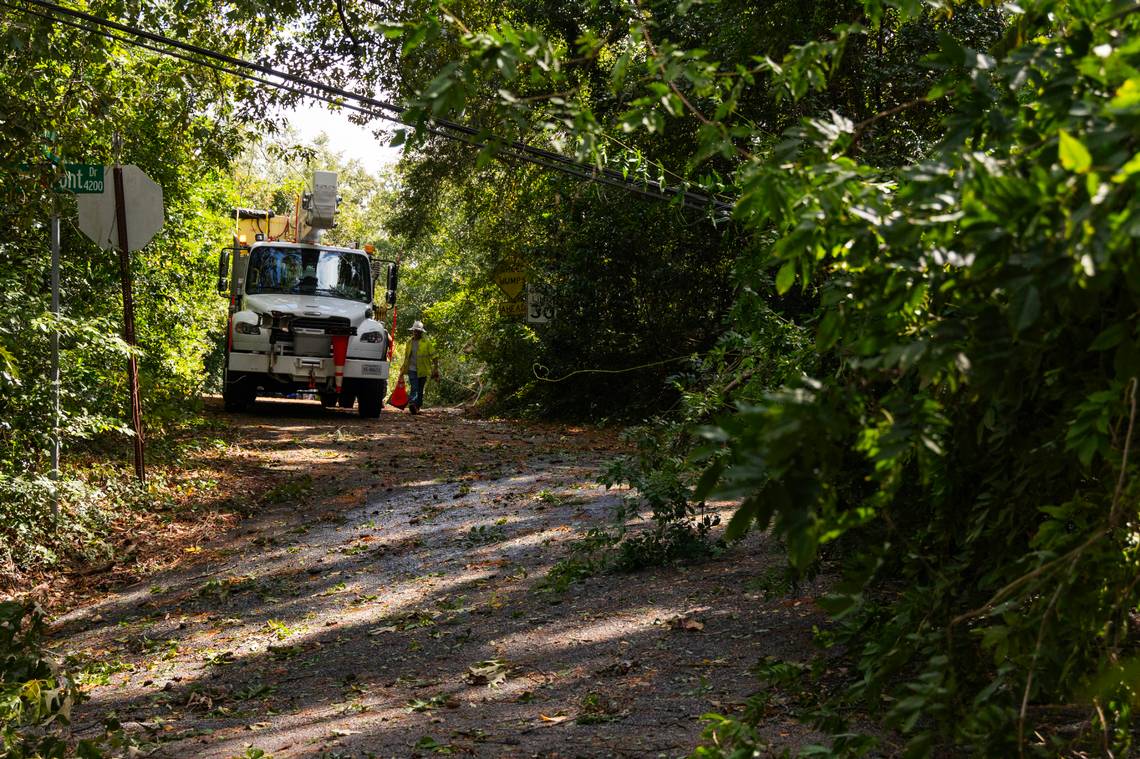
When the remnants of Hurricane Helene left South Carolina, the storm had caused nearly 1.3 million power outages, downed trees blocking roads and multiple fatalities.
But before the storm hit in SC, it didn’t receive the usual amount of hype that other hurricanes receive.
Leading up to the arrival of Helene’s effects, Gov. Henry McMaster declared a state of emergency and issued an executive order to allow municipalities and state agencies work together more easily.
But his office did not hold press briefings ahead of the storm as it has done for previous hurricanes, telling people what to expect and how to prepare.
“There’s a lot of information out. Everyone was on alert, and it was very much covered in the media,” McMaster told reporters during a briefing Friday at the S.C. Emergency Management Division. “We were satisfied that the information was out.”
McMaster and emergency officials point out they propositioned crews around the state before the storm.
Weather officials and utilities executives expected that as the storm worked its way north, it would stay further west in Georgia before turning to the west towards Tennessee and Kentucky.
However it stayed further east.
“It was supposed to go through Atlanta and came closer to Augusta,” said Keller Kissam, the president of Dominion Energy South Carolina. “It threw all of its energy to the east, and that’s why we have the number of outages that we have, mainly from shear force winds taking down trees and causing structural damage.”
The number of outages has approached the number seen after Hurricane Hugo in 1989, although the state has a higher population now.
McMaster called hurricanes unpredictable, adding previous storms that looked like they would hit South Carolina changed direction before making landfall heading to the Atlantic Ocean or hitting North Carolina.
“This one was headed slightly away, and then turned right into us when it got inland,” McMaster said.
Much of the change in path took place overnight as well.
Because of the storm’s path, parts of the state that normally don’t take the brunt of storms have the bulk of Helene’s damage.
Duke Energy South Carolina President Mike Callahan said the storm caused historic damage for its system in the Upstate.
“The Pee Dee, we often get storms of this magnitude,” Callahan said. “In the Upstate, our customers there do not typically face this kind of damage.”
EMEA Tribune is not involved in this news article, it is taken from our partners and or from the News Agencies. Copyright and Credit go to the News Agencies, email news@emeatribune.com Follow our WhatsApp verified Channel




